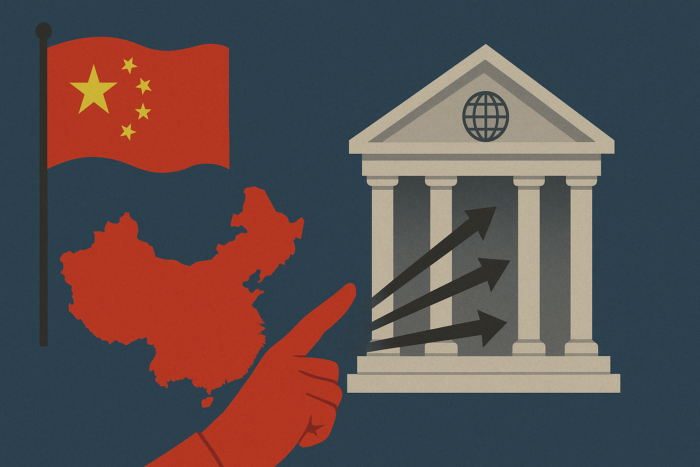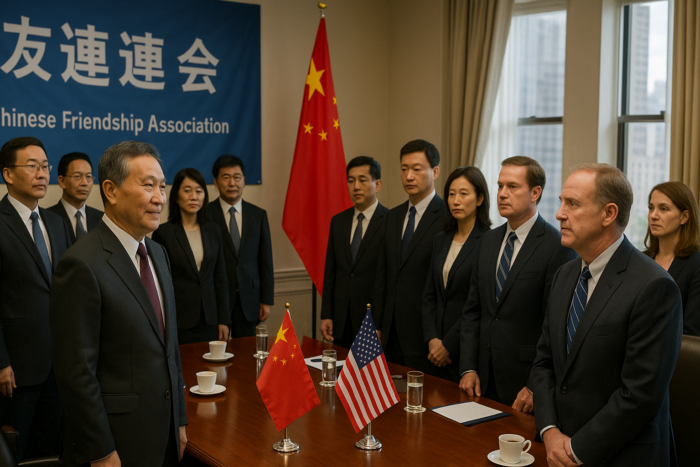The role of organized crime in Chinese influence operations has become a key component of Beijing’s global strategy, according to explosive new findings. On June 24, 2025, The Washington Post revealed how the Communist Party exploits criminal networks like the World Hongmen History and Culture Association to spread government propaganda, promote Taiwan unification, and broker Belt and Road Initiative projects while conducting espionage operations under the cover of cultural organizations. The article begins:
In December, a man considered by U.S. officials to be among Asia’s most powerful crime bosses gathered friends and allies in the Chinese casino city of Macao. Videos from the event show Wan Kuok Koi belting out Cantonese songs and smiling broadly for the cameras, seemingly unbothered by investigations across multiple countries into his alleged role in large-scale scams, fraud and money laundering. The 69-year-old Wan — widely known by his nickname, “Broken Tooth” — presided over the celebration as chairman of the World Hongmen History and Culture Association, which describes itself as an ethnic Chinese fraternal organization devoted to promoting Chinese culture abroad. According to the U.S. Treasury, however, the association serves as a front for the 14K triad, one of China’s largest organized crime groups with involvement in “drug trafficking, illegal gambling, racketeering, human trafficking, and a range of other criminal activities.”
Read more: https://www.washingtonpost.com/world/2025/06/24/china-organized-crime-hongmen-wan-kuok-koi/
Key Points
- The Hongmen Association disseminates Chinese government propaganda, promotes Taiwan unification, and facilitates Belt and Road Initiative projects as part of Beijing’s “United Front” strategy to expand its global influence.
- Criminal networks forge strategic ties to political elites across target countries, with Hongmen establishing Chinese overseas police centers in Uganda that serve Beijing’s espionage operations.
- The organization filmed propaganda videos supporting Beijing’s National Security Law during Hong Kong’s pro-democracy protests while placing newspaper ads applauding China’s COVID-19 response.
- CCP entities deliberately cultivate criminal proxies who proclaim loyalty to Beijing, allowing them to thrive offshore while conducting influence operations that serve state objectives.
Organized Crime and Global Influence Operations: Intersecting Networks
Organized crime and global influence operations are increasingly converging, as state and non-state actors exploit political and cultural divisions to advance their interests. For example, Russia and China may have an interest in the Balkan region’s organized crime networks as part of their broader efforts to gain influence in the area. Meanwhile, in Austria, police have targeted individuals and networks linked to both organized crime and foreign influence, including those with ties to the Muslim Brotherhood and Turkish influence networks.
These activities reflect a broader trend in which organized crime groups operate with diverse structures—ranging from strict hierarchies to decentralized networks—and insulate leadership through corruption and intimidation, often aligning with state-backed influence campaigns to achieve shared objectives. External research confirms that transnational organized crime is a pervasive and evolving challenge that intersects with global threats such as violent conflict and terrorism, and that criminal networks increasingly exploit geopolitical instability to expand illicit economies and undermine governance.
External References:
Disclaimer
The Global Influence Operations Report (GIOR) employs AI throughout the posting process, including generating summaries of news items, the introduction, key points, and often the “context” section. We recommend verifying all information before use. Additionally, images are AI-generated and intended solely for illustrative purposes. While they represent the events or individuals discussed, they should not be interpreted as real-world photography.










